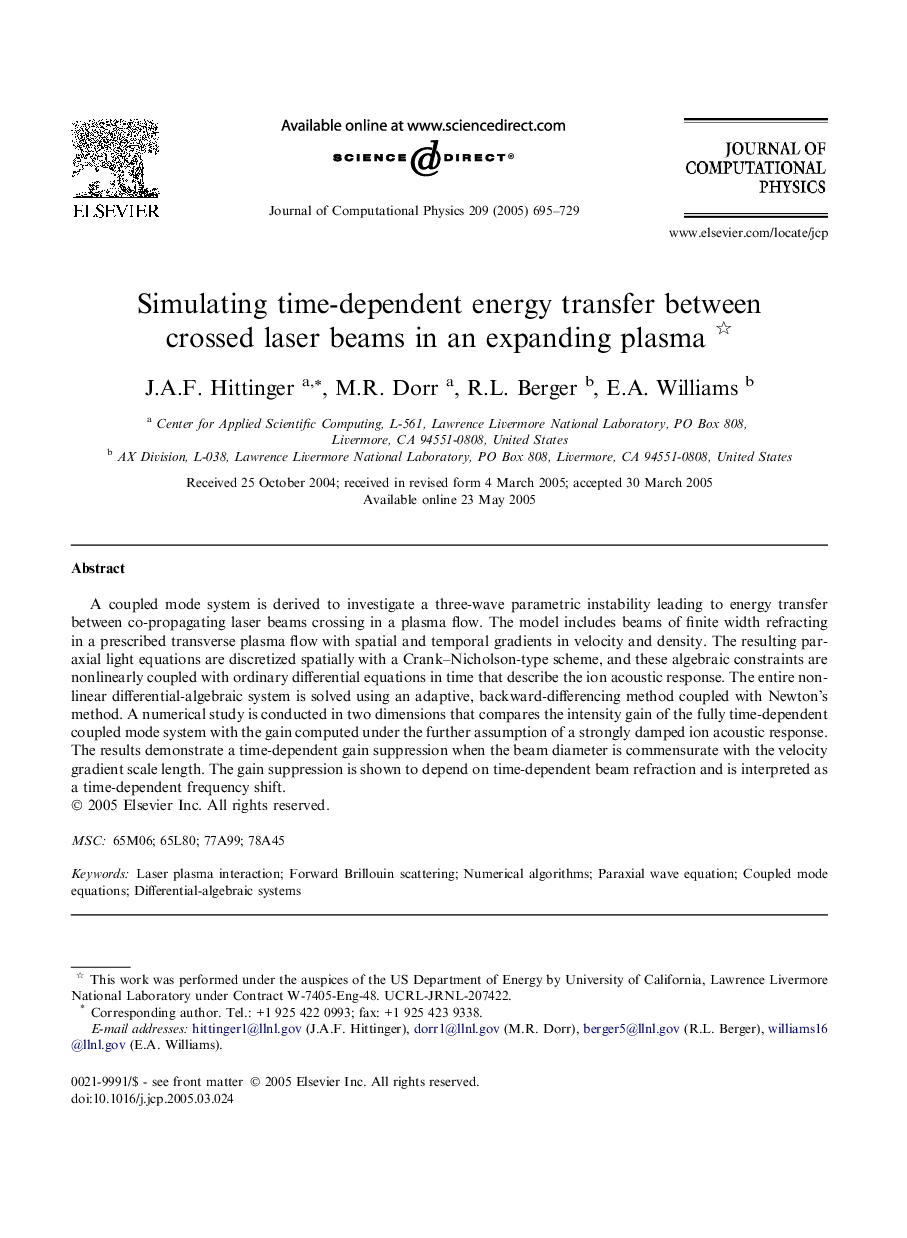| Article ID | Journal | Published Year | Pages | File Type |
|---|---|---|---|---|
| 10357805 | Journal of Computational Physics | 2005 | 35 Pages |
Abstract
A coupled mode system is derived to investigate a three-wave parametric instability leading to energy transfer between co-propagating laser beams crossing in a plasma flow. The model includes beams of finite width refracting in a prescribed transverse plasma flow with spatial and temporal gradients in velocity and density. The resulting paraxial light equations are discretized spatially with a Crank-Nicholson-type scheme, and these algebraic constraints are nonlinearly coupled with ordinary differential equations in time that describe the ion acoustic response. The entire nonlinear differential-algebraic system is solved using an adaptive, backward-differencing method coupled with Newton's method. A numerical study is conducted in two dimensions that compares the intensity gain of the fully time-dependent coupled mode system with the gain computed under the further assumption of a strongly damped ion acoustic response. The results demonstrate a time-dependent gain suppression when the beam diameter is commensurate with the velocity gradient scale length. The gain suppression is shown to depend on time-dependent beam refraction and is interpreted as a time-dependent frequency shift.
Keywords
Related Topics
Physical Sciences and Engineering
Computer Science
Computer Science Applications
Authors
J.A.F. Hittinger, M.R. Dorr, R.L. Berger, E.A. Williams,
